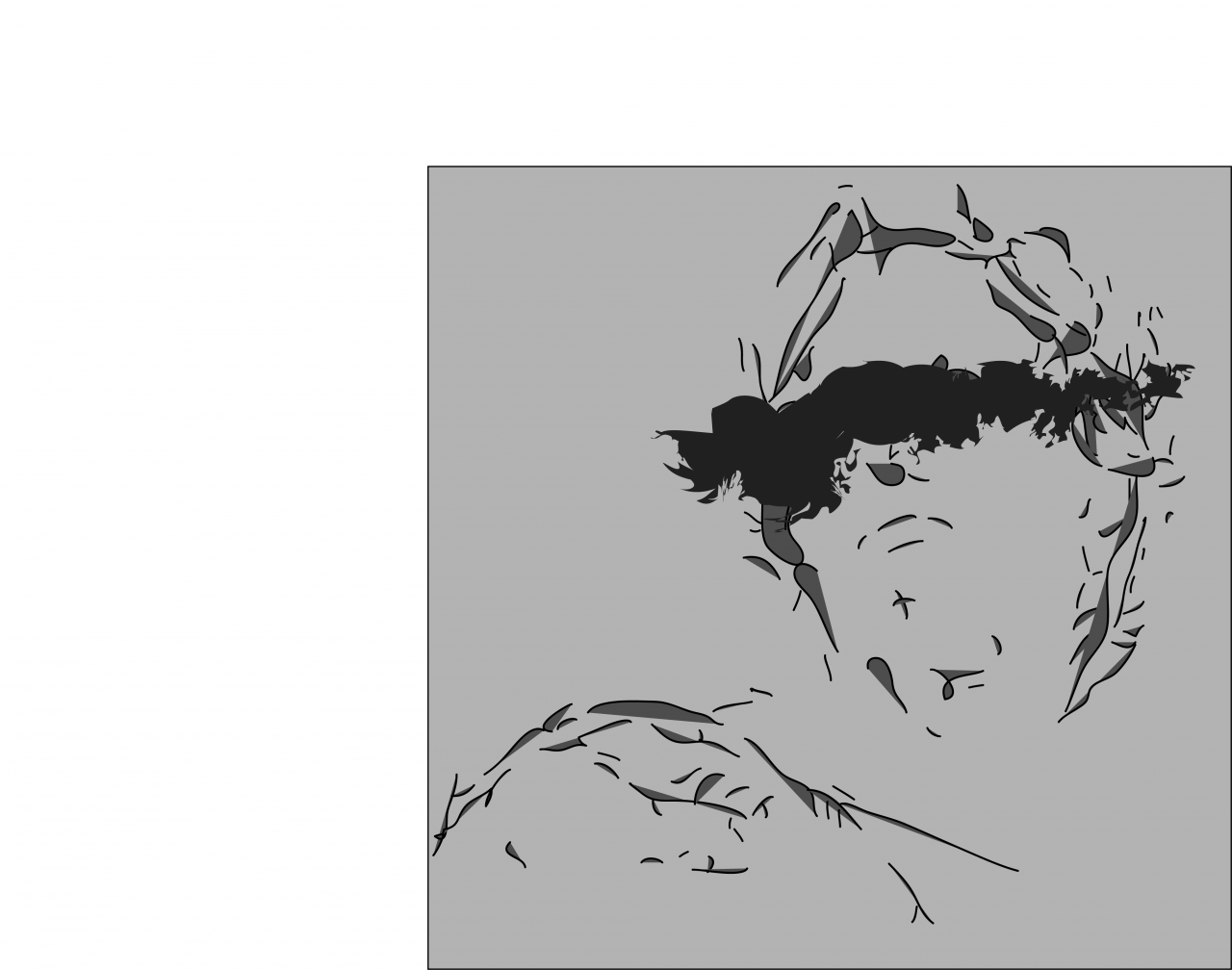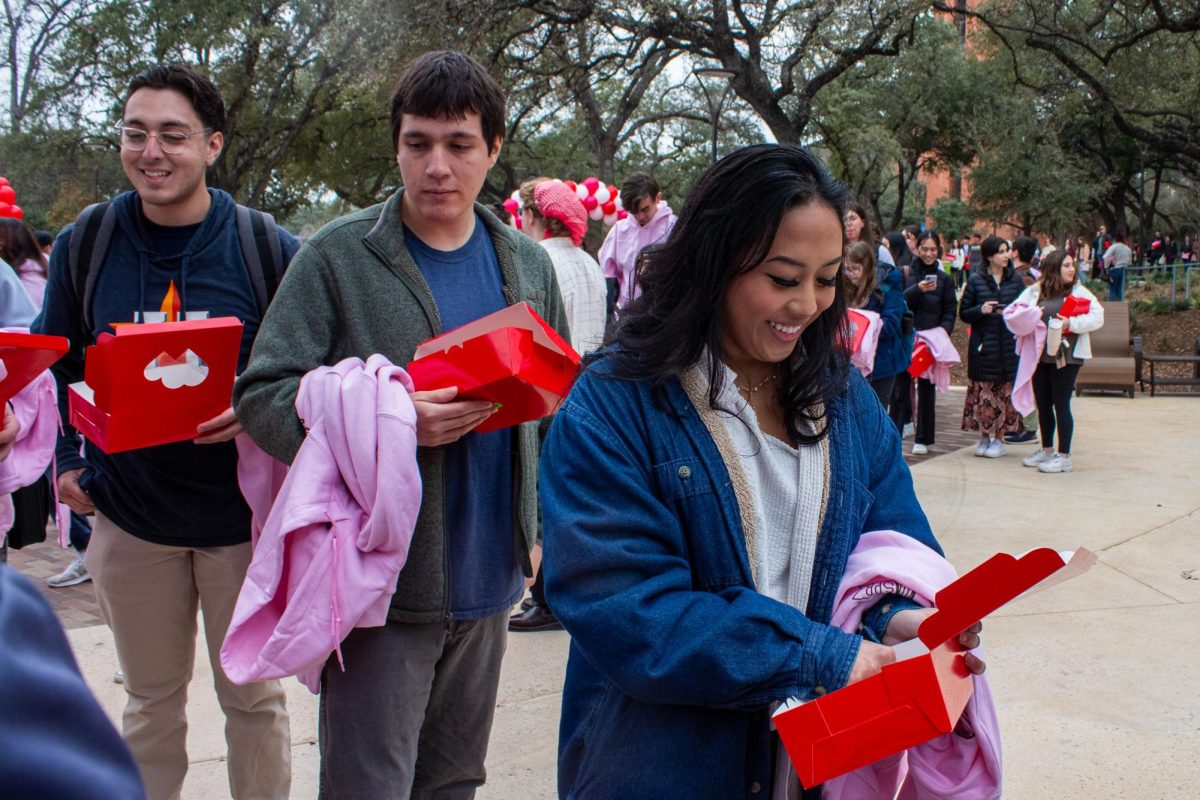Illustration by Gabrielle Rodriguez
On July 5, The Trinity Way shared their first post across social media platforms, in which they expressed their mission to “discuss the ways in which the Trinity way perpetuates white supremacist ideology … provid[ing] a visual experience as to how students, who do not fit into that framework, are dismissed and mistreated.” Since then, the collective has shared 148-and-counting experiences of discrimination and mistreatment against members of the Trinity community, with the goal of exposing the regularity and breadth of such instances.
“I think the project is a great platform for people to share their experiences, and it’s a great resource for people in the Trinity community to be more aware about everything that’s going on on campus. I have my own stories and I know a few of my friends have some as well,” said Briahn Hawkins, an alum from the class of 2020. “But the majority of the stories that have come from The Trinity Way are new to me.”
The Trinity Way (TTW) collective has garnered over 1,200 followers on Instagram, almost 300 followers on Twitter and over 140 followers on Facebook to date.
“We chose the name ‘Trinity Way’ because this is a phrase often thrown in the face of marginalized students, faculty and staff in defense of institutional tradition. We wanted to turn it on its head and say ‘The Trinity Way’ allows the university to carry out numerous injustices behind the guise of ‘business as usual’,” wrote The Trinity Way (TTW) in a group statement over email.
The collective stated that TTW was “born out of multiple interactions between former and current students after the BLM statement from Trinity University” was released.
TTW explained that their purpose is to reveal one through-line connecting all of the stories.
“The Trinity Way aims to encompass a wide variety of experiences with an intersectional focus. These diverse yet shared experiences of discrimination and violence lead the viewer to recognize the root cause of all these inequalities: White supremacy,” said TTW.
Each post of TTW contains a written statement from a member of the Trinity community. To date, there are 15 posts that include pictures of students or alumni holding up a piece of paper on which their experience is written. One post included Stacy Davidson, former director of Academic Support, who shared her headshot along with a quote detailing a microaggression she experienced during her time at Trinity. All other posts to date are anonymous statements, ranging from incidents of racism to sexism to discrimination based on one’s sexual orientation. Despite not being paired with a photograph, anonymous posts also have a visual component.
“Many accounts that we drew inspiration from for TTW utilize a text-only system for anonymous entries, however, we chose to accompany each anonymous entry with a representation of the submitter depicted by a classical statue. Classical Greco-Roman sculptures have been historically white-washed to perpetuate a tradition of white supremacy,” wrote TTW. “Contemporary study has found that these artworks whose whiteness has been used to signify racial superiority/purity were often in fact painted in vibrant color. We believe the history of these statues is emblematic of the white-washed, color-stripped experiences of Trinity University.”
Kirsten Iyare, senior human communications major and president of the Black Student Union (BSU), wasn’t surprised to read about the incidents. She first encountered TTW when she saw a tweet using the hashtag “#TheTrinityWay” that critiqued TUPD’s Blue Lives Matter flag, which was hung up in front of their on-campus headquarters earlier this summer. There were subsequent calls from the Trinity community to take the flag down.
“As president of the BSU and as a student, and as someone who has witnessed the TUPD and their lack of effort to help students, specifically, students of color — not to knock them on any other avenue because I’ve seen other tweets of how helpful they have been — they just haven’t been helpful to me or anyone that looks like me,” said Iyare. “When that flag thing happened, no had said anything about it, it was kind of underground. The people on campus were the ones who saw it and that’s the only reason we knew it had been hung. After that, it was boom: that’s The Trinity Way.”
Iyare also disclosed that she had anonymously submitted an experience which was published on TTW.
“We want to share experiences as a means of pushing for change. This allows people to see that these experiences are not singular or isolated by any means; but instead, part of the larger systemic devaluation of student life at Trinity University,” said TTW.
Gabriella Garriga, senior sociology and economics double-major and president of Trinity Diversity Connection, hopes TTW pushes Trinity students to take more seriously the discrimination certain students report.
“I don’t speak for all students, but I hope the Trinity Way has snapped something in students who are typically apathetic or who maybe have heard a one-off story …” said Garriga, “I think that this account can bring hope to a lot of students who maybe feel like that their experience was like a marginalized experience or to students who didn’t believe other students, I hope that now Trinity students or members just won’t be as apathetic as they have been in the past.”
When asked about the on-campus reform the collective wishes to see, the collective stated that they should not be expected to ideate these changes.
“There is a misconception that collectives such as TTW must have ideas on campus ‘reform’; otherwise, their work is seen as invalid. Unless TTW is getting paid like administrators, whose primary job is to create these “reforms,” we will refuse to address these types of questions and simply continue the work of sharing student experiences.”
Some members of the Trinity community are already calling for specific reforms, after reading the experiences of discrimination posted on TTW social media accounts.
“In all honesty, based on all of the negative stories that have come out about Sheryl Tynes and David Tuttle, I think they should be fired,” said Hawkins.
The Trinity Way reported that the names of Dr. Tynes and Dean Tuttle “come up very often in people’s responses.”
Both Sheryl Tynes, vice president for Student Life, and David Tuttle, associate vice president for Student Life and Dean of Students, responded to calls for resignations.
“As a sociologist and an educator, I understand the motivation to assign blame and responsibility to individuals when we are heartbroken and enraged by injustices that are truly systemic in nature,” said Tynes. “While we may not always agree with what is shared publicly, out of a respect for confidentiality and a desire to encourage students to formalize their complaints, we do not comment on individual cases.”
“I have been dedicated to seeking equality for students throughout my more than 30 years at Trinity, and I am proud of the many things we have accomplished and the ways I have contributed to making Trinity a more welcoming place,” said Tuttle.
Not all agree with the methods of TTW and instead see the experiences revealed on the social media pages as a part of the college experience.
According to TTW, Robert Huesca, professor of communications and international studies, commented under one of TTW’s Facebook posts that detailed an in-class experience where a white student made a comment about foreign accents in a class and this was recounted on TTW by a student who saw the professor, who had an accent, to be “visibly hurt” after the comment was made. As stated on the original Facebook post, Huesca commented, “You hit a nerve. That’s what a college class is all about.”
“We found his response to trivialize the experience being shared and entirely miss the point of our entire platform,” wrote TTW collective.
Huesca shared that he made the comment with the intent of making two points.
“My comment was intended to make a good contribution to a bad website in two ways. First, the student made a complaint but also challenged an ignorant attitude in a class. That’s what is supposed to happen in a college classroom. I was congratulating the student, rather than condemning the ignorant comment. Second, I put my name on my contribution, unlike the vast majority of contributors to this page who hide behind anonymity while issuing charges that border on libel. I think people should own their communication and wanted to offer an example of what that looks like,” said Huesca in an email response.
Other faculty members see The Trinity Way less as bordering on libel and more as productive and necessary for the future of the university.
“Faculty and other groups on campus, [and] Dr. Dee’s task force, have really been advocating for stronger leadership on campus around diversity and inclusion, around being anti-racist on campus. I really hope that that happens, because I think that The Trinity Way really illustrates how that’s needed,” said Sarah Beth Kaufman, associate professor of sociology. “These are our students, and I think there’s lots of different ways to react to it, right? You can read it as a faculty member and think ‘Oh my gosh, I’m working so hard and here are these students complaining,’ essentially, which is like writing a paper and then being upset when someone criticizes it. It’s just not a useful way to experience this. I mean, I have seen myself in those posts in that I know that I have upset students. I read one and I thought, ‘That’s me,’ and I was upset with myself at the time when I did it and it just made me remember that, you know, my actions matter.”
Garriga suggests TTW serves as a learning experience for which Trinity should be grateful.
“I think the Trinity Way gets a lot of judgment because people think they’re just calling out people for no reason. But I think it’s so important for people, even people who think they’re above this, to understand that they’re also causing harm,” said Garriga. “If you’re causing harm, you should be grateful that someone’s calling you out for it so you can stop.”
Kaufman acknowledges the different conversations happening on campus and regards the Trinity Way as “effective.”
“I think it has gotten the attention of the people on campus. I think people are having very different reactions,” said Kaufman. “I have heard frustration at call-out culture, you know, the kind of question about what’s more effective to use: people’s names or to leave them [anonymous]. … Certainly, there’s that conversation of what is more effective. For the people in my circles, it’s not surprising, but it is very sad. We as faculty are advocating as much as we can, and it’s not part of our jobs either to be on these committees … and we’re not paid either. The DIO task force, in particular, this summer, put in — I was one of the subject experts so I wasn’t in the majority of the meetings — a lot of work and are not being paid [extra]. I felt like it was a good summer to be doing that because [The DIO task force and the Trinity Way] were working in tandem. They didn’t mean to, but I think it was effective. It’s the right time. That people are talking about it is the point.”












